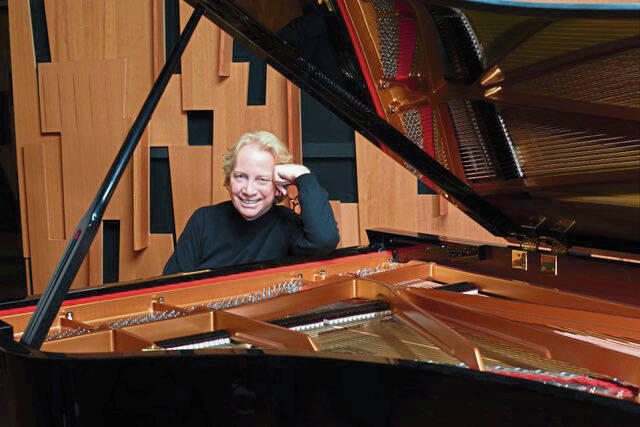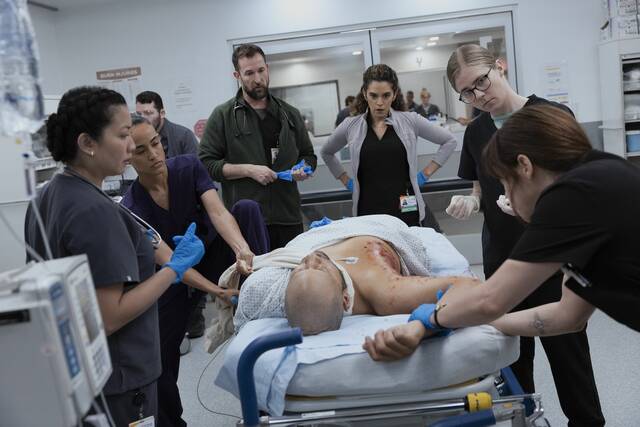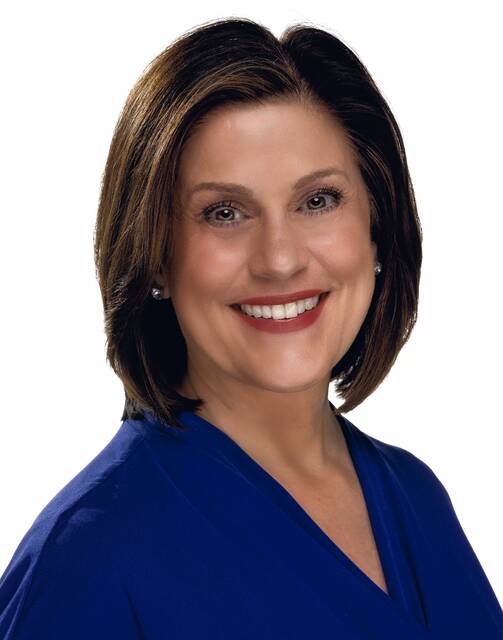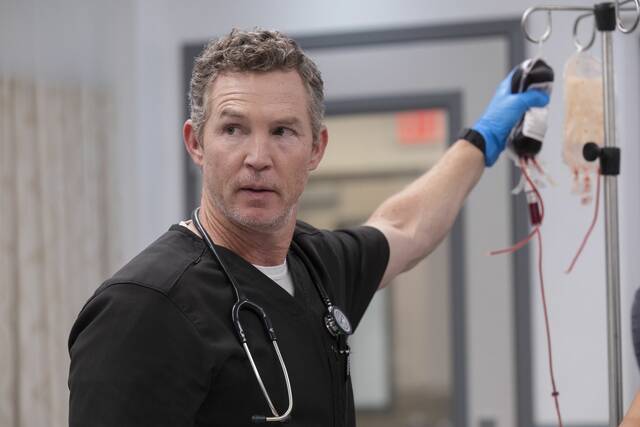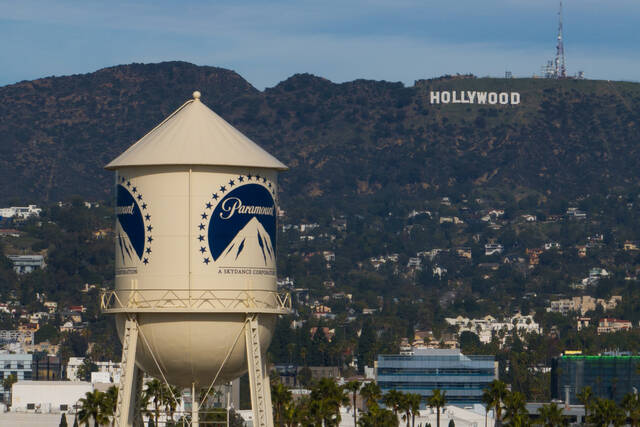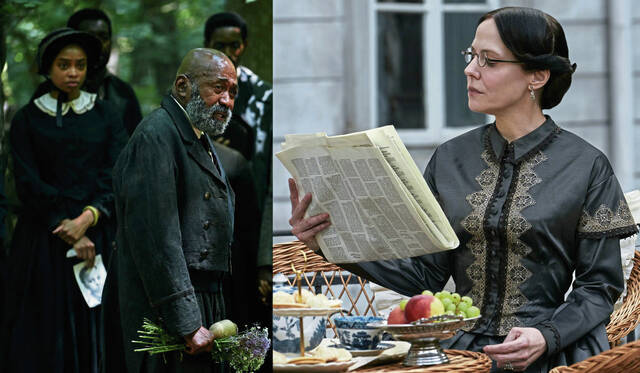A documentary opening this year’s Pittsburgh JFilm Festival chronicles a brilliant musician’s triumph over adversity.
“Left Alone Rhapsody: The Musical Memoir of Pianist John Bayless” is a documentary about the world-renowned pianist and composer who suffered a stroke at 54 that caused the loss of the use of his dominant right hand. The film follows his physical, spiritual and artistic journey throughout the rise of his career and his struggles and triumphs post-stroke.
“John’s music is amazing, and his journey as a musician was pretty remarkable,” said Stewart Schulman, director of “Left Alone Rhapsody.”
Bayless, who will perform after the screening, grew up in a small West Texas town, and he could play the piano by ear at 4.
“I heard a lot of (music) in my house growing up; my mother was a singer and a pianist,” Bayless said. He also heard music at church — he grew up Southern Baptist.
He recalled Dorothy Smith, who played the piano at the church and “was all over the keyboard. … I mean, there wasn’t a note she didn’t press,” Bayless said.
“I would be so excited about that music that I imitated her on the pew in front of me. … My mother could swear my rhythm was right,” he added.
Bayless attended Julliard and was also a protégé of Leonard Bernstein. During his successful 30-year career, he recorded a dozen albums and played concerts worldwide. He made his Carnegie Hall debut at 25, where he performed George Gershwin’s “Rhapsody in Blue.”
“He was a crossover artist because he mashed up popular and classical music. His first big album was ‘Bach Meets the Beatles,’ where he played all these Beatles songs the way Bach would have played them,” Schulman said.
Everything was turned on its head one night when he was woken by his partner, Bruce, because his breathing was heavily labored. Bayless found, upon waking, his right side was paralyzed.
“It’s like God shut the light switch off — that’s how quick, in a matter of seconds, it’s a different reality,” he said.
He spent time in the hospital doing intensive speech, physical and occupational therapy. Then he went home. At first, he had no desire to play the piano again.
“I just thought, ‘How can I do this?’ ” he said.
Not long after, he was asked to perform at the memorial service of a friend, Henry Z. Steinway.
“I hadn’t even touched the piano at that point,” he said. “I knew I had to. It’s like I heard Henry’s voice saying, ‘Get on with it, get on with it.’
“The first time I walked out and had to play was for Henry’s memorial service. … Playing in front of all these colleagues, these pianists and all these people, to have that right out of the gate was challenging,” he said.
YouTube videos of artists including Sting, Julio Yglesias and film composer Ennio Morricone helped him get back to the piano.
“They just broke my heart. … that’s what drove me to play, and that’s where I found the nucleus of the essence of what I wanted to say. They spoke to me so strongly.”
Naturally, learning to play with one hand hasn’t been easy.
“When God takes away a hand, you have five fingers left, so you have to create something in a different way,” he said.
Schulman became interested in making “Left Alone Rhapsody” when Bayless was in New York recording some of his greatest hits adapted and reimagined for one-handed play.
One way of doing this is by using a Yamaha Disklavier piano, which allows Bayless to play one hand’s part of a piece, record it and play the other hand’s part.
”It’s basically an acoustic piano with a computer built in. It acts like a player piano because it will record the way a person plays exactly — the emotional intensity, the keyboard depression — with over a thousand different ways to adjust what it’s recording, all the different touches,” Schulman said.
“It is an amazing piece of ingenuity and work,” Bayless said of the Disklavier.
Dr. George F. Wittenberg, professor in the Department of Neurology at the University of Pittsburgh, said massive strides have been made in technology that aids in stroke recovery in recent decades.
“Some of them have been ways to help people practice movement, because practicing the movement is a mainstay of getting better,” Wittenberg said.
Wittenberg added that Pitt has been involved in studies to stimulate the spinal cord itself, which could potentially help people who have suffered similar types of post-stroke effects.
“You’re actually strengthening the effects of the brain signals to the spinal cord,” he said.
“So much is happening in neuroscience right now,” Schulman said, speaking of the inclusion of scientific information in the documentary. “To also talk to an audience that has to deal with adversity like brain trauma or strokes, and try to understand a little bit of what goes on in a person’s brain when that happens and how the brain can adapt and adjust to transcend the adversity that it’s faced through the trauma.”
Schulman was intrigued by what he calls Bayless’ “second act.”
“We all have — if we’re lucky — three acts in our life, the way cinema is created,” he said. “In the case of John Bayless, the first act was his lengthy career as a virtuoso piano player, and the stroke was the adversity that began the second act.
“Act three is how you transcend it completely and triumph, and that’s his reinvention,” he said.
For both Bayless and Schulman, the process of making “Left Alone Rhapsody” was difficult but rewarding. The film also includes the passing of Bayless’ partner, Bruce, not long after Bayless’ stroke, and the spiritual journey he embarked on that led to his conversion to Judaism.
“Growing up in the Bible Belt, I always felt different. I felt like I was Jewish,” he said.
The film will be shown tonight at the Carnegie Music Hall in Oakland. Additionally, Bayless will appear at the film’s screening, where he will perform live, and he and Schulman will lead a Q&A.
“What’s been rewarding — even though it’s been a really hard journey — the audiences that have been seeing the film, the way they have been moved, the way they’ve been inspired,” Schulman said. “I want the audiences to come and see the film and be inspired by John Bayless’ remarkable story.”
When asked what he hoped audiences would get out of the film, Bayless said, “To hopefully be inspired to keep moving, to keep living and to keep doing, and don’t give up.”
“Left Alone Rhapsody: The Musical Memoir of Pianist John Bayless” will open the JFilm Festival at 7 p.m. Thursday at the Carnegie Music Hall in Oakland. For tickets and more information, visit filmpittsburgh.org.


